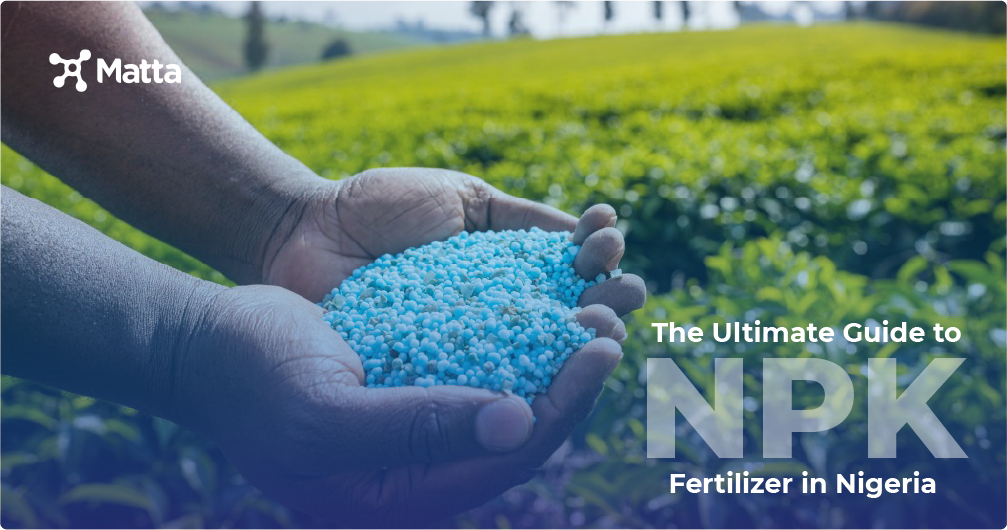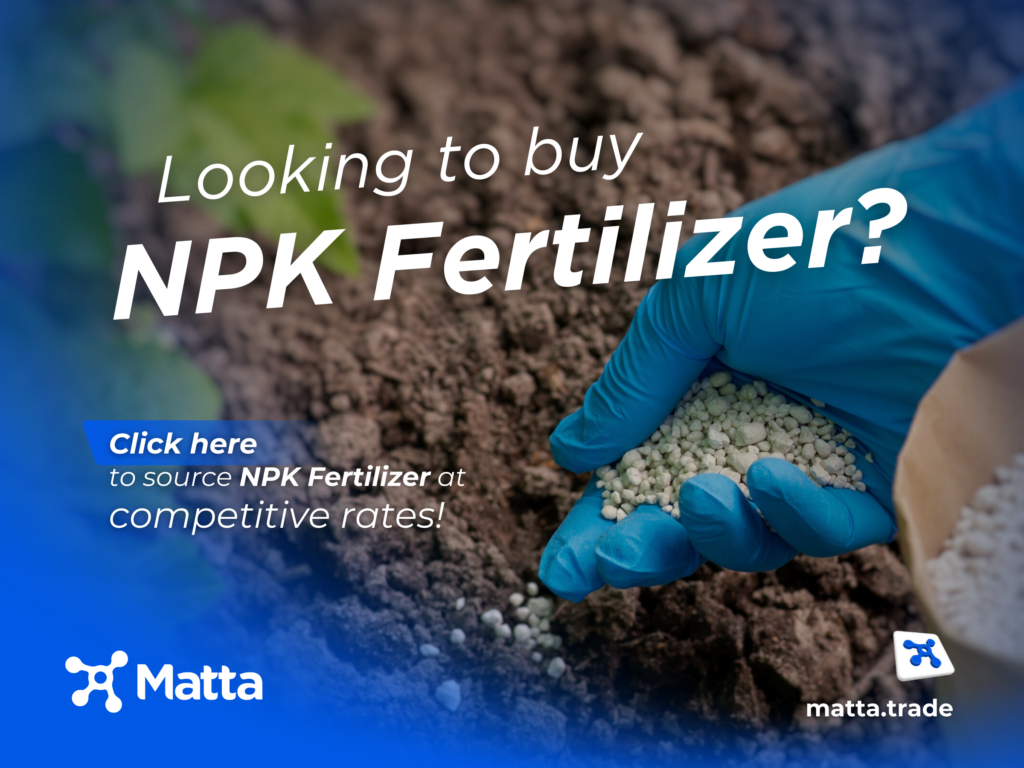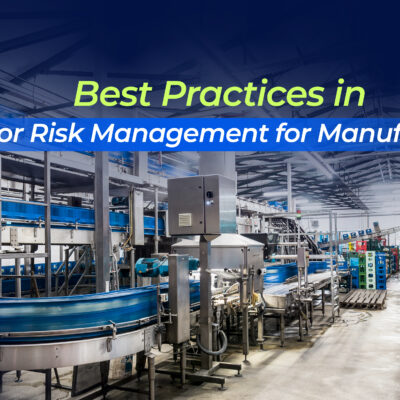
In a sector as dynamic and critical as agriculture, understanding the role of NPK fertilizer is not just beneficial—it’s essential. This guide aims to be your comprehensive resource, offering in-depth insights that are both actionable and enlightening.
If you’re reading this, you’re about to journey through the fascinating world of NPK fertilizers in Nigeria—where science meets soil and potential turns yield. Whether you’re a farmer, an investor, a curious mind, or a policymaker, this guide is your key to unlocking the secrets of one of the most crucial elements in Nigerian agriculture.
From the history and types of NPK fertilizers to market trends and stakeholder dynamics, this guide covers it all. Prepare to be informed, engaged, and empowered.
Introduction: What is NPK Fertilizer?
NPK stands for Nitrogen, Phosphorus, and Potassium—the three primary nutrients essential for plant growth. But it is more than just a blend of elements; it’s the lifeblood of modern agriculture.
There are various compositions and types of NPK fertilizers, including.
Traditional vs Specialty NPK Fertilizers
- Balanced Blends contain equal proportions of N, P, and K, ideal for general-purpose fertilizing, while High-Nitrogen Blends are designed for leafy plants that require more nitrogen for growth.
The NPK Ratio: Understanding the Numbers
The NPK ratio is a numerical representation of the proportion of Nitrogen (N), Phosphorus (P), and Potassium (K) in a fertilizer. However, the numbers are usually displayed in a sequence like 10-10-10 or 14-14-14, where each number corresponds to the percentage by weight of N, P, and K, respectively.
Customizing NPK Ratios for Growth Stages
Different crops require specific nutrients at various stages. Leafy vegetables need higher Nitrogen for lush growth, so a 20-10-10 ratio works well. Fruiting plants like tomatoes benefit from more Phosphorus during flowering, making 10-20-10 ideal.
Growth Stage Recommendations
- Early Growth: High Nitrogen (24-6-10) promotes strong vegetative growth.
- Flowering & Fruiting: Higher Phosphorus and Potassium (10-20-20) aid fruit development.
- Root Crops: Balanced or Phosphorus-rich ratios support root growth, ideal for carrots or potatoes.
Balancing Nutrients
Focusing too much on one nutrient can cause nutrient lockout, limiting uptake of others. Balanced ratios like 14-14-14 suit general use but may not meet all crop needs.
Precision through Soil Testing
Soil tests help fine-tune fertilization by revealing existing nutrient levels, preventing imbalances. Understanding NPK ratios also enables precise application—e.g., a 50 kg bag of 10-10-10 contains 5 kg each of Nitrogen, Phosphorus, and Potassium.
Understanding the NPK ratio isn’t just about knowing what the numbers mean; it’s about applying that knowledge to maximize yield, improve crop quality, and optimize resource use. Mastering this aspect can be a game-changer for your farming operations.
The 21st Century: Precision Agriculture
Today, NPK fertilizers are used in more sophisticated ways than ever, thanks to advancements in precision agriculture. Soil sensors, drones, and data analytics allow for the precise application of NPK fertilizers, maximizing efficiency while minimizing waste and environmental impact.
The global history of NPK fertilizers is a journey from rudimentary understanding to scientific mastery. It sets the stage for the specific developments and challenges that have shaped the NPK fertilizer market in Nigeria.
Milestones and Landmark Events
The Fertilizer Procurement and Distribution Program (FPDP): Launched in the 1970s, this government initiative aimed to make fertilizers, including NPK, accessible to smallholder farmers.
The National Fertilizer Policy of 2001: This policy aimed to liberalize the fertilizer sector and encourage private participation, which directly impacted the availability and variety of NPK fertilizers.
The Growth Enhancement Support Scheme (GESS): Introduced in 2012, this scheme further democratized access to fertilizers by providing subsidies directly to farmers.
The Market Landscape: Where Opportunity Meets Branding
The NPK fertilizer market in Nigeria is a fertile ground for brand differentiation and value proposition crafting. With a market size continually expanding due to population growth and government initiatives, the opportunity for brand positioning is immense.
Smallholder Farmers seek affordability and accessibility. Commercial Farms prioritize quality and efficiency with specialized blends. Government Projects demand credibility and large-scale supply without quality compromise.
Meanwhile, local brands like Notore and Dangote leverage their homegrown appeal, while international players like Yara and OCP Africa highlight global standards and technological superiority.
The Branding Levers: What Can Make or Break Your Brand
- Quality Assurance: A strong quality assurance narrative can set your brand apart in a market rife with counterfeit products.
- Sustainability: With increasing environmental consciousness, a sustainability angle in your brand story can be a significant differentiator.
- Education and Engagement: Brands that invest in educating their consumers sell a product and build a community. This is invaluable in terms of customer loyalty.
Production and Consumption of NPK Fertilizers in Nigeria
Production has grown significantly over the past decade, partly thanks to government incentives and private-sector investments. The production process is a complex interplay of sourcing raw materials, blending, and quality control.
- Raw Material Sourcing: Imported and locally sourced materials like urea, phosphate rock, and potash are key players in the production stage.
- Blending Facilities: With state-of-the-art blending plants, Nigeria is increasingly seeking self-sufficiency in NPK fertilizer production.
Understanding consumption patterns is also crucial for any stakeholder in the NPK fertilizer market. Here’s what the data tells us:
- Seasonal Fluctuations: Consumption peaks during the planting seasons, offering a window for targeted marketing campaigns.
- Regional Variations: The North, with its expansive arable land, consumes a significant portion of NPK fertilizers, while the South focuses more on specialty blends for cash crops.
By understanding the production and consumption pattern, you can glimpse the major players in the Nigerian market.
Numbers Tell the Story
- Annual Consumption: Nigeria consumes approximately 1 million metric tons of NPK fertilizers annually, a number that’s on the rise.
- It is reported that more than 75 blending plants exist in Nigeria, 18 of which have come online since 2015.
- Import vs. Local Production: As of the latest data, local production accounts for about 60% of the market, a significant leap from a decade ago.
In Nigeria’s ever-evolving landscape of NPK fertilizers, understanding the nuances of production and consumption is not just insightful—it’s essential. These insights are the backbone for crafting strategies that resonate with market realities.
Sectors That Require NPK Fertilizer
Agriculture
Cereal Crops
- Maize: One of the most widely cultivated crops in Nigeria, maize requires a balanced NPK blend to support its rapid growth and high yield.
- Rice: With the government’s push for self-sufficiency in rice production, specialized NPK fertilizers designed for paddy fields are gaining traction.
- Wheat: Primarily grown in the northern regions, wheat requires NPK fertilizers rich in nitrogen to support its protein content.
Cash Crops
- Cocoa: As a significant export commodity, cocoa plantations often use potassium-based NPK fertilizers to improve bean quality.
- Rubber: NPK fertilizers help in the rapid growth of rubber trees and improve latex yield, a crucial factor for this export-oriented crop.
- Oil Palm: Specialized NPK blends enhance the quality and quantity of palm oil, a key contributor to Nigeria’s economy.
Horticulture
- Export-Oriented Flowers: Roses, carnations, and lilies are some of the flowers grown for export, requiring specialized NPK blends to meet international quality standards.
- Vegetable Farming
- Tomatoes: Given their sensitivity to soil conditions, tomatoes often require a balanced NPK blend to prevent diseases like blossom-end rot.
- Leafy Greens: Spinach, lettuce, and other leafy greens require NPK fertilizers rich in nitrogen to support their rapid leaf growth.
Landscaping and Urban agriculture
Home Gardens
- Urban Farming: As more people engage in urban farming, there’s a growing demand for easy-to-use NPK fertilizer blends suitable for small plots and even container gardening.
Public Spaces
- Parks and Golf Courses: These spaces require slow-release NPK fertilizers to sustain grass and ornamental plants over extended periods.
Research and Development
Agricultural Research: Institutions and experimental farms often require specialized NPK blends for research purposes, offering a niche but growing market.
Challenges and Opportunities of Using NPK Fertilizers
Challenges
High-quality NPK fertilizers are often expensive and regionally scarce. Counterfeit products and incorrect NPK ratios can harm crop yield. Overuse may cause nutrient runoff, polluting water bodies. Weather conditions, like heavy rain, reduce fertilizer effectiveness, while many farmers lack proper knowledge, leading to inefficiencies. Lastly, transporting bulky fertilizers to remote areas is also costly.
Opportunities
Technology such as drones and soil sensors can optimize fertilizer use. Subsidy programs and custom NPK blends enhance accessibility and effectiveness. Sustainable farming practices, including slow-release formulations, reduce runoff. Growing food demand underscores the importance of efficient fertilization, while local NPK production lowers cost and supports the economy.
What Does the Future Hold for NPK Fertilizers in Nigeria?
Technological Advancements
- Mobile Agriculture: With the increasing penetration of mobile technology in Nigeria, apps that help farmers determine the right NPK ratios and application timing could become mainstream.
- Localized IoT Solutions: Given the growing tech industry in Nigeria, localized IoT solutions for precise fertilizer application could emerge.
Sustainability Trends
- Local Organic Movement: As awareness about sustainable farming grows in Nigeria, there could be a rise in locally produced, eco-friendly NPK alternatives.
- Government Initiatives: Expect more government programs promoting sustainable agriculture, possibly including subsidies for eco-friendly fertilizers.
Policy and Regulation
- NAFDAC and SON Guidelines: Stricter quality control measures for fertilizers could be implemented to combat the issue of counterfeit products.
- Land Use Policies: Changes in land use policies could affect the scale at which NPK fertilizers can be effectively utilized.
Economic Factors
- Exchange Rates: Given Nigeria’s economic dynamics, fluctuations in exchange rates could significantly impact the cost of imported NPK fertilizers.
- Local Production: Efforts to boost local manufacturing of NPK fertilizers could gain momentum, driven by both economic and food security concerns.
Consumer Preferences
- Quality Over Quantity: With a growing middle class, the Nigerian market may see a higher demand for quality produce, influencing farmers to opt for precise and effective NPK fertilization.
- Traceability: As consumers become more educated, the demand for traceability in food production could rise, affecting how NPK fertilizers are marketed and used.
Social and Cultural Factors
- Youth in Agriculture: As more young people enter the farming sector, expect a quicker adoption of modern, efficient practices, including the optimized use of NPK fertilizers.
- Community Co-operatives: The future may see more community-based initiatives for bulk purchasing and shared use of high-quality NPK fertilizers.
Climate and Environmental Factors
- Adaptation to Climate Change: With changing weather patterns, research into NPK formulations that are more resilient to extreme conditions could become crucial.
- Water Management: Given the water scarcity issues in parts of Nigeria, NPK fertilizers that work well in low-moisture conditions may gain popularity.
ROUNDING UP
As we navigate the intricate landscape of NPK fertilizers in Nigeria, it’s clear that this is not just a topic for today but a pivotal element shaping the future of agriculture in the nation. From the complexities of NPK ratios to the challenges and opportunities that lie ahead, understanding this subject is imperative for anyone serious about modern farming in Nigeria.
The future beckons with promises of technological advancements, sustainable practices, and an ever-evolving market in its demands and challenges. For seasoned farmers and newcomers alike, mastering the art and science of NPK fertilization is not just about boosting yields in the next harvest; it’s about laying the groundwork for a more sustainable, efficient, and prosperous agricultural sector.
As we look ahead, let’s aim to keep pace with these changes and be the trailblazers, setting new standards and best practices. After all, the future of Nigerian agriculture doesn’t just depend on the soil beneath our feet; it depends on the knowledge we apply to it.





